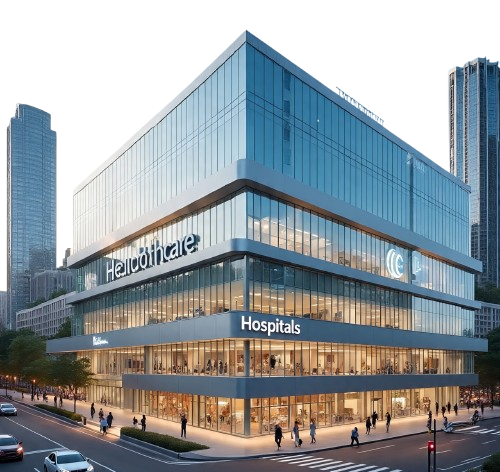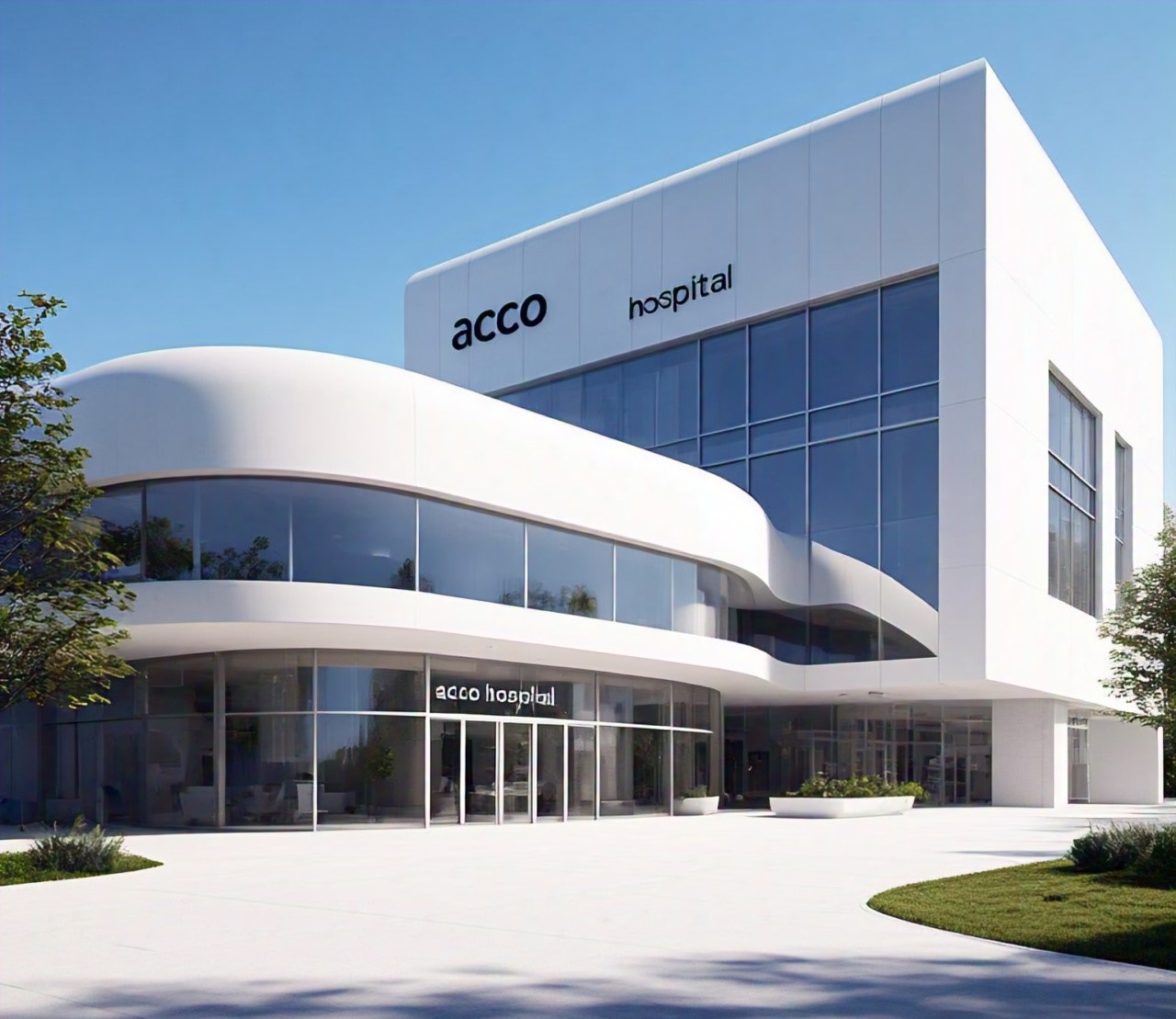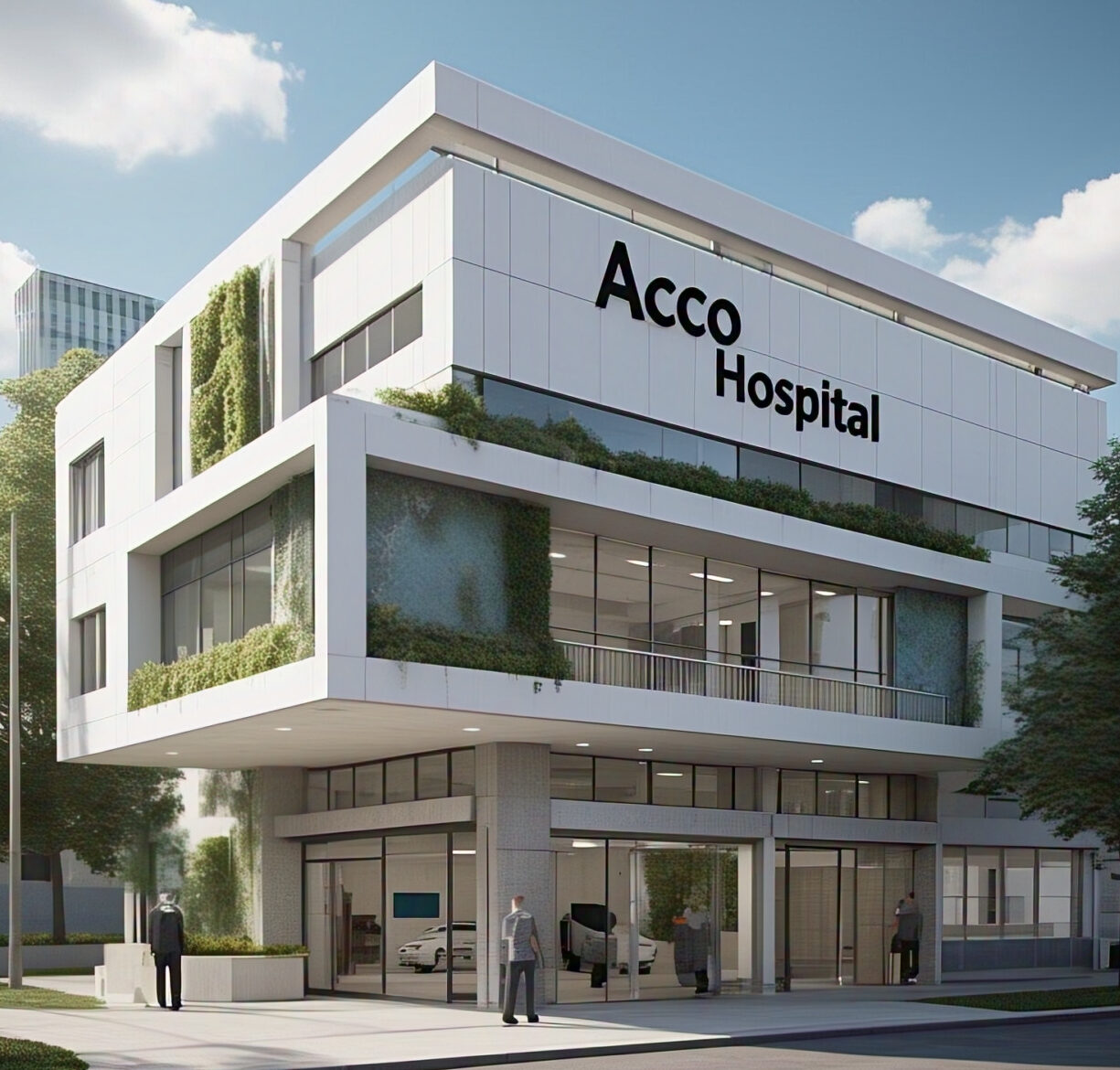
ACCO Sustainable and Smart: Next-Generation Hospital Design Trends in Pakistan
Introduction
In recent years, the healthcare industry in Pakistan has been undergoing a significant transformation. The shift towards sustainable and smart design in hospital construction reflects global trends and local needs. As Pakistan continues to grow and modernize, the demand for innovative, eco-friendly, and technologically advanced healthcare facilities is rising. This article delves into the next-generation hospital design trends in Pakistan, focusing on sustainable practices and smart technologies, with a particular emphasis on the ACCO (Advanced Construction and Care Organization) approach.
Outline
- Introduction
- Overview of trends in hospital design
- Importance of sustainable and smart hospitals
- The Concept of Sustainable Hospital Design
- Definition and key principles
- Benefits of sustainable design in healthcare
- Smart Technology Integration in Hospitals
- Overview of smart technologies
- How smart technologies enhance hospital efficiency
- ACCO’s Vision for Sustainable and Smart Hospitals
- ACCO’s mission and values
- Examples of ACCO’s sustainable hospital projects
- Key Design Trends in Sustainable Hospitals
- Energy efficiency and renewable resources
- Green building certifications and standards
- Use of sustainable materials
- Smart Features in Modern Hospital Design
- Advanced HVAC systems
- Intelligent lighting and automation
- Telemedicine and digital health solutions
- Case Studies: Innovative Hospital Designs in Pakistan
- Highlighting successful projects
- Lessons learned from these projects
- Challenges in Implementing Sustainable and Smart Designs
- Financial and logistical challenges
- Overcoming resistance to change
- The Future of Hospital Design in Pakistan
- Emerging trends and technologies
- Predictions for the next decade
- Conclusion
- Summary of key points
- The impact of ACCO’s approach on the future of healthcare facilities in Pakistan
- FAQs
- What are the benefits of sustainable hospital design?
- How does smart technology improve hospital operations?
- Can you provide examples of ACCO’s hospital projects?
- What are the main challenges in implementing these designs?
- What trends are expected in hospital design over the next decade?
Introduction
The design of hospitals is evolving rapidly, driven by a need for efficiency, sustainability, and enhanced patient care. In Pakistan, the focus is shifting towards integrating advanced technologies and eco-friendly practices into hospital design. This change is crucial for meeting the growing healthcare demands and addressing environmental concerns. In this article, we explore the cutting-edge trends in hospital design with a special focus on ACCO’s innovative approach.
The Concept of Sustainable Hospital Design
Definition and Key Principles
Sustainable hospital design refers to the creation of healthcare facilities that minimize environmental impact while maximizing efficiency and patient well-being. Key principles include energy efficiency, water conservation, and the use of sustainable materials. These principles ensure that hospitals are not only functional but also eco-friendly.
Benefits of Sustainable Design in Healthcare
Sustainable design offers numerous benefits, including reduced operational costs, improved indoor air quality, and a smaller carbon footprint. For patients and staff, it creates a healthier environment, which can lead to better outcomes and enhanced satisfaction.
Smart Technology Integration in Hospitals
Overview of Smart Technologies
Smart technologies encompass a range of innovations, from automated systems to advanced data analytics. In hospitals, these technologies enhance various aspects of operations, including patient monitoring, facility management, and communication.
How Smart Technologies Enhance Hospital Efficiency
By integrating smart technologies, hospitals can streamline operations, reduce errors, and improve overall efficiency. For instance, automated systems can manage lighting and HVAC (heating, ventilation, and air conditioning) based on real-time data, leading to significant cost savings and improved comfort.
ACCO’s Vision for Sustainable and Smart Hospitals
ACCO’s Mission and Values
ACCO, or Advanced Construction and Care Organization, is at the forefront of revolutionizing hospital design in Pakistan. Their mission focuses on integrating sustainable and smart solutions to create cutting-edge healthcare facilities.
Examples of ACCO’s Sustainable Hospital Projects
ACCO has undertaken several projects that exemplify their commitment to sustainability and innovation. For example, their recent hospital in Karachi incorporates solar panels, rainwater harvesting systems, and energy-efficient lighting, setting a new standard for eco-friendly healthcare facilities.
Key Design Trends in Sustainable Hospitals
Energy Efficiency and Renewable Resources
Modern hospitals are designed to be energy-efficient, utilizing renewable resources such as solar and wind power. This approach not only reduces operating costs but also minimizes environmental impact.
Green Building Certifications and Standards
Hospitals are increasingly seeking green building certifications such as LEED (Leadership in Energy and Environmental Design). These certifications ensure that facilities meet high standards of sustainability and environmental responsibility.
Use of Sustainable Materials
The choice of building materials plays a crucial role in sustainable design. Hospitals are now using materials that are recycled, locally sourced, or have low environmental impact, contributing to overall sustainability.
Smart Features in Modern Hospital Design
Advanced HVAC Systems
Smart HVAC systems adjust temperature and air quality based on occupancy and environmental conditions. These systems enhance patient comfort and reduce energy consumption.
Intelligent Lighting and Automation
Automated lighting systems can adjust brightness based on natural light and occupancy, improving energy efficiency and creating a more comfortable environment for patients and staff.
Telemedicine and Digital Health Solutions
Telemedicine and digital health solutions are becoming integral to modern hospital design. These technologies enable remote consultations and monitoring, expanding access to care and improving patient outcomes.
Case Studies: Innovative Hospital Designs in Pakistan
Highlighting Successful Projects
Several hospitals in Pakistan have successfully implemented sustainable and smart design principles. For instance, the Lahore Medical Center’s new wing features energy-efficient systems and sustainable materials, demonstrating the practical benefits of these trends.
Lessons Learned from These Projects
These case studies provide valuable insights into the challenges and successes of implementing sustainable and smart designs. Key lessons include the importance of stakeholder engagement and the need for comprehensive planning.
Challenges in Implementing Sustainable and Smart Designs
Financial and Logistical Challenges
Implementing advanced designs can be costly and complex. Financial constraints and logistical issues often pose significant challenges, requiring careful planning and resource management.
Overcoming Resistance to Change
Resistance to change is another obstacle, especially in established institutions. Educating stakeholders and demonstrating the long-term benefits of sustainable and smart designs can help overcome this resistance.
The Future of Hospital Design in Pakistan
Emerging Trends and Technologies
The future of hospital design in Pakistan will likely see continued advancements in technology and sustainability. Innovations such as AI-driven healthcare solutions and further integration of renewable energy are expected to play a significant role.
Predictions for the Next Decade
Over the next decade, we can anticipate a greater emphasis on patient-centered design, enhanced use of technology, and more widespread adoption of sustainable practices in hospital construction.
Conclusion
The integration of sustainable and smart design principles in hospital construction is transforming the healthcare landscape in Pakistan. ACCO’s innovative approach exemplifies how these trends can create more efficient, eco-friendly, and patient-focused healthcare facilities. As Pakistan continues to advance, the future of hospital design looks promising, with ongoing developments expected to bring even greater improvements to healthcare delivery.
FAQs
What are the benefits of sustainable hospital design?
Sustainable hospital design reduces environmental impact, lowers operating costs, and enhances patient and staff well-being by creating healthier indoor environments.
How does smart technology improve hospital operations?
Smart technology enhances hospital operations through automation, improved efficiency, and better data management, leading to cost savings and improved patient care.
Can you provide examples of ACCO’s hospital projects?
ACCO has developed several notable projects, including the eco-friendly hospital in Karachi, which features sustainable technologies such as solar panels and energy-efficient systems.
What are the main challenges in implementing these designs?
Challenges include high initial costs, logistical complexities, and resistance to change. Overcoming these requires careful planning and stakeholder engagement.
What trends are expected in hospital design over the next decade?
Future trends include increased use of AI, further advancements in sustainable technologies, and greater emphasis on patient-centered design.




